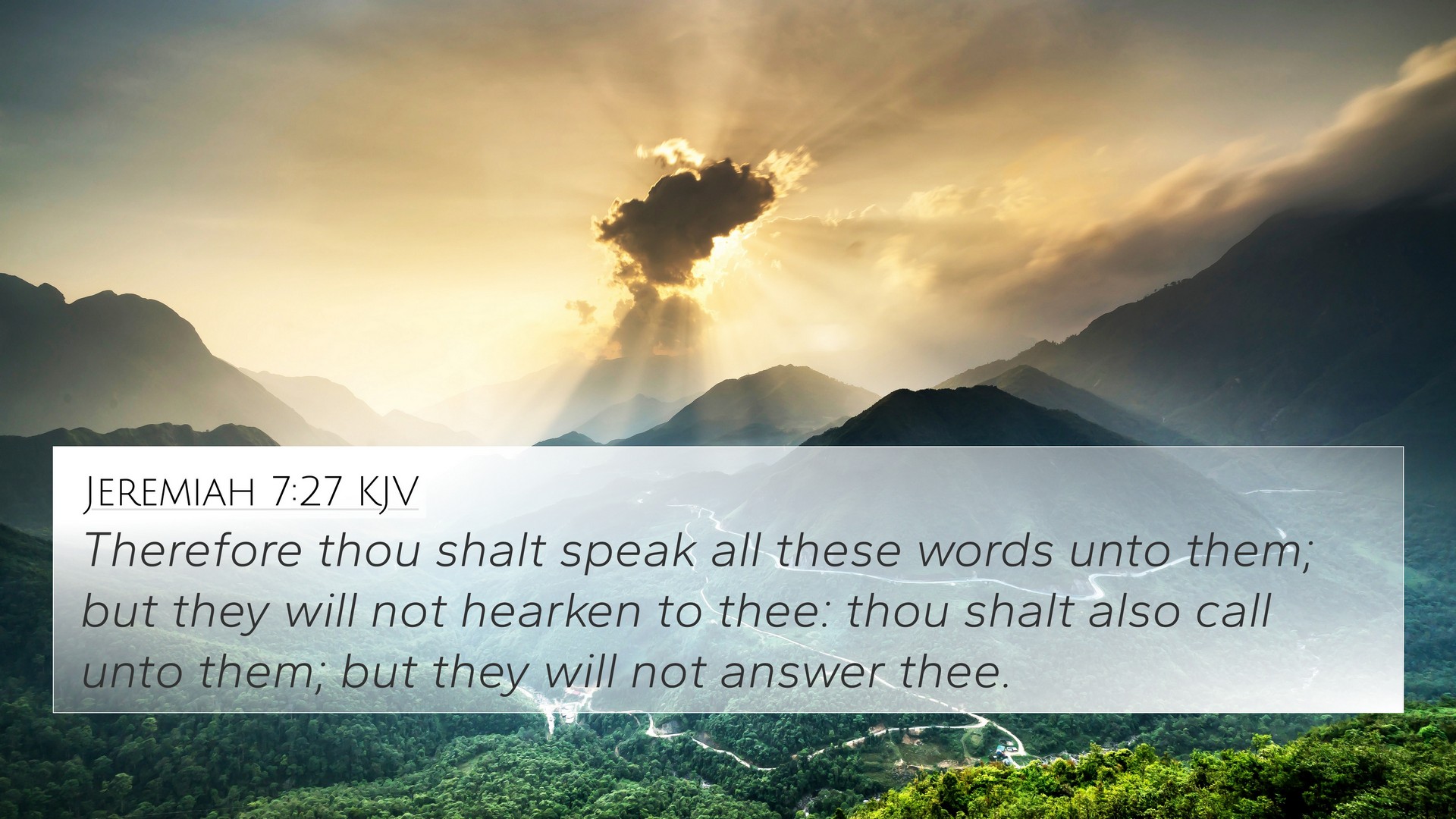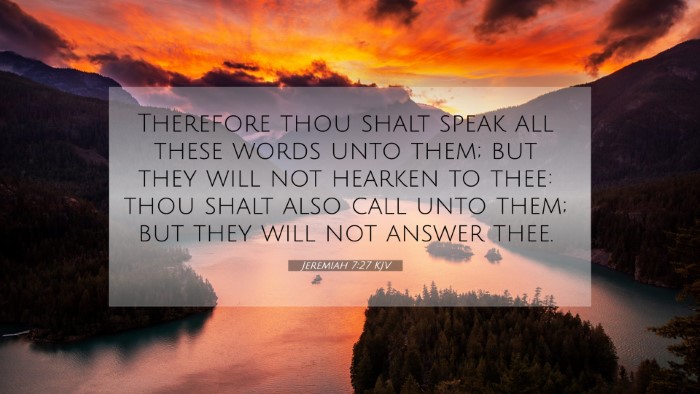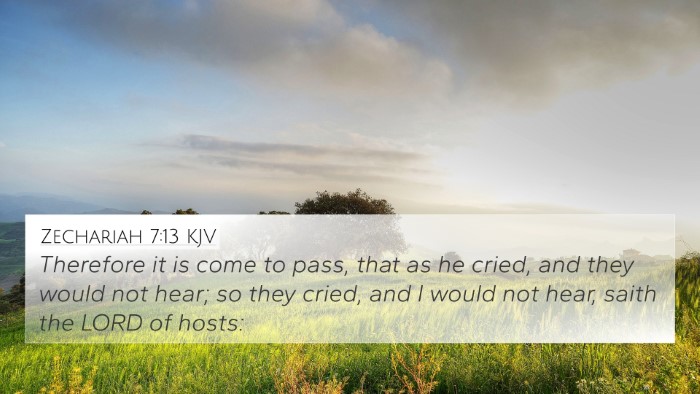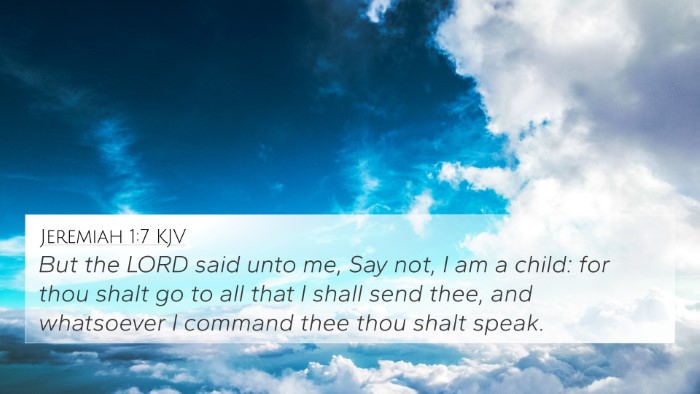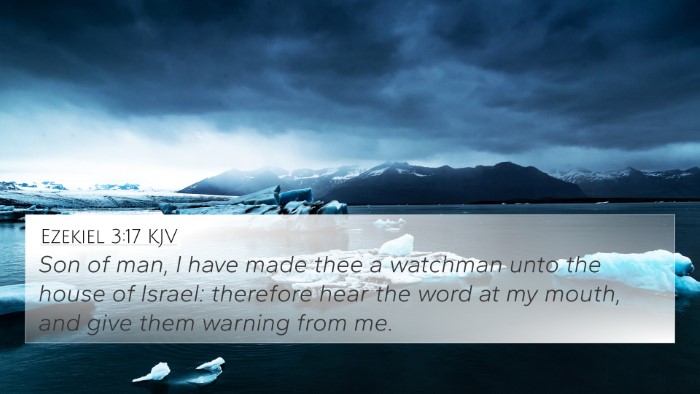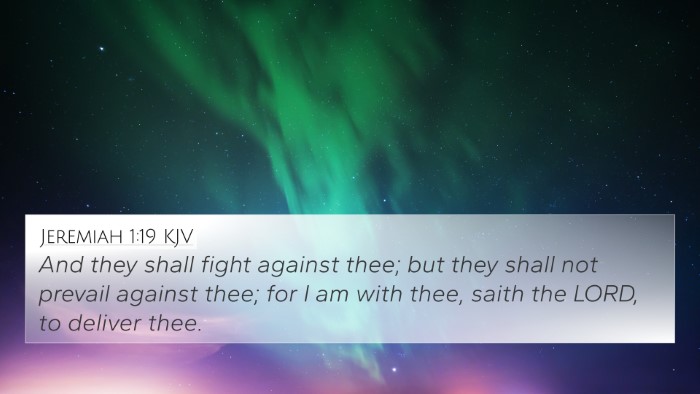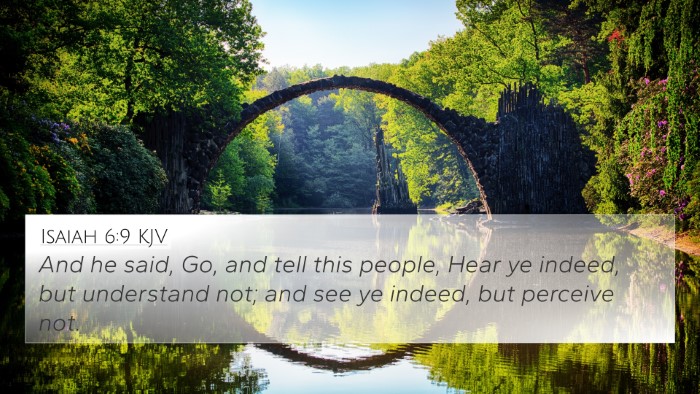Understanding Jeremiah 7:27
Jeremiah 7:27 states: "And thou shalt speak all these words unto them; but they will not hearken to thee: thou shalt also call unto them; but they will not answer thee." This verse captures a poignant moment in the prophetic ministry of Jeremiah where he expresses the difficulty and futility of his prophetic warnings to the people of Judah. The insights derived from the public domain commentaries illustrate the depth and meaning behind this scripture.
Contextual Overview
The Book of Jeremiah is filled with prophetic messages directed towards the Kingdom of Judah during a time of impending judgment due to their continued disobedience and idolatry. Jeremiah's calling was to deliver a message of repentance and caution, yet he faced substantial resistance and apathy from the people.
Commentary Insights
-
Matthew Henry emphasizes the role of the prophet as a watchman who must deliver God's messages irrespective of the reception they receive. He notes that Jeremiah’s role is to speak the truth boldly, regardless of the people's willingness to listen.
-
Albert Barnes discusses the profound sorrow of Jeremiah as he recognizes the ingrained stubbornness of the people. He interprets this as a reflection on human nature's tendency to resist divine guidance and warnings.
-
Adam Clarke points out that the rejection of the message does not diminish the importance of delivering it. He underscores the idea that the responsibility lies in proclamation, while the response is a matter of the individual’s heart condition.
Thematic Connections
This verse highlights several key themes that are prevalent throughout the Bible:
- Resistance to God's Word: The continuous struggle between divine instruction and human disobedience is a recurrent theme in the scriptures.
- The Role of the Prophet: Jeremiah's experience reflects the broader biblical narrative of prophetic ministry seen in books like Isaiah and Ezekiel, where prophets face similar rejection.
- Judgment and Mercy: The dual themes of God's judgment on obstinate hearts contrasted with His enduring mercy is woven throughout biblical texts.
Cross-References
Jeremiah 7:27 connects with various other scriptures that help deepen our understanding. Here are some key cross-references that illuminate its meaning:
- Isaiah 6:9-10: God's command to Isaiah involves similar themes of speaking to a people who will not understand.
- Ezekiel 3:7: God's warning to Ezekiel about the people’s hardened hearts and refusal to listen.
- Matthew 13:14-15: Jesus references Isaiah to explain the pervasive spiritual blindness of the people in His time.
- Acts 7:51: Stephen’s rebuke of the Jewish leaders highlights their persistent resistance to the Holy Spirit.
- Proverbs 1:24-25: Wisdom's lament over being ignored parallels Jeremiah's plight.
- John 1:11: Jesus came to His own, yet His own did not receive Him, echoing the theme of rejection.
- 1 Peter 3:20: References the days of Noah, where the preaching was ignored, showing a pattern of rejection of God's messengers throughout history.
Lessons for Today
The message in Jeremiah 7:27 resonates in current times, reminding readers of the following lessons:
- The Importance of Proclamation: Believers are called to share the truth, regardless of the audience’s receptiveness.
- Awareness of Spiritual Blindness: It is essential to be aware of our own hearts and to seek openness to God’s voice.
- Hope in God’s Faithfulness: Even when people resist, God remains faithful to His promises and His call.
Cross-Referencing Insights
For those studying the Bible deeply, tools for cross-referencing can be invaluable. Utilizing a bible concordance or a bible cross-reference guide can facilitate an approach to bible cross-reference study that enriches understanding. Here are some methods and tools to consider:
- Identify key themes: Look for common themes in related verses to draw connections.
- Utilize a cross-reference system: This can involve physical Bibles with cross-referencing notes or online resources.
- Comparative studies: Engage in comparative studies of Pauline epistles or books of prophecy to glean further insights.
- Use commentaries: Resources like Matthew Henry, Adam Clarke, and Albert Barnes provide valuable insights and connections.
Conclusion
Understanding Jeremiah 7:27 within the context of its cross-references and the broader themes of the Bible deepens our engagement with God’s word. The message, though rooted in a historic context of rejection, continues to speak powerfully to believers today. By exploring the links between this and other scripture, one can appreciate the continuity of God’s message throughout the ages.
